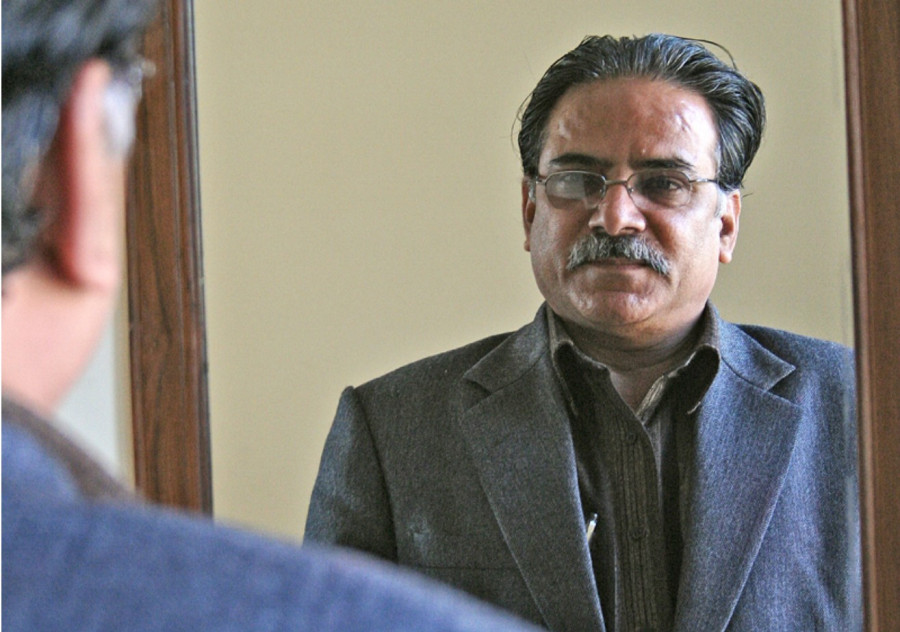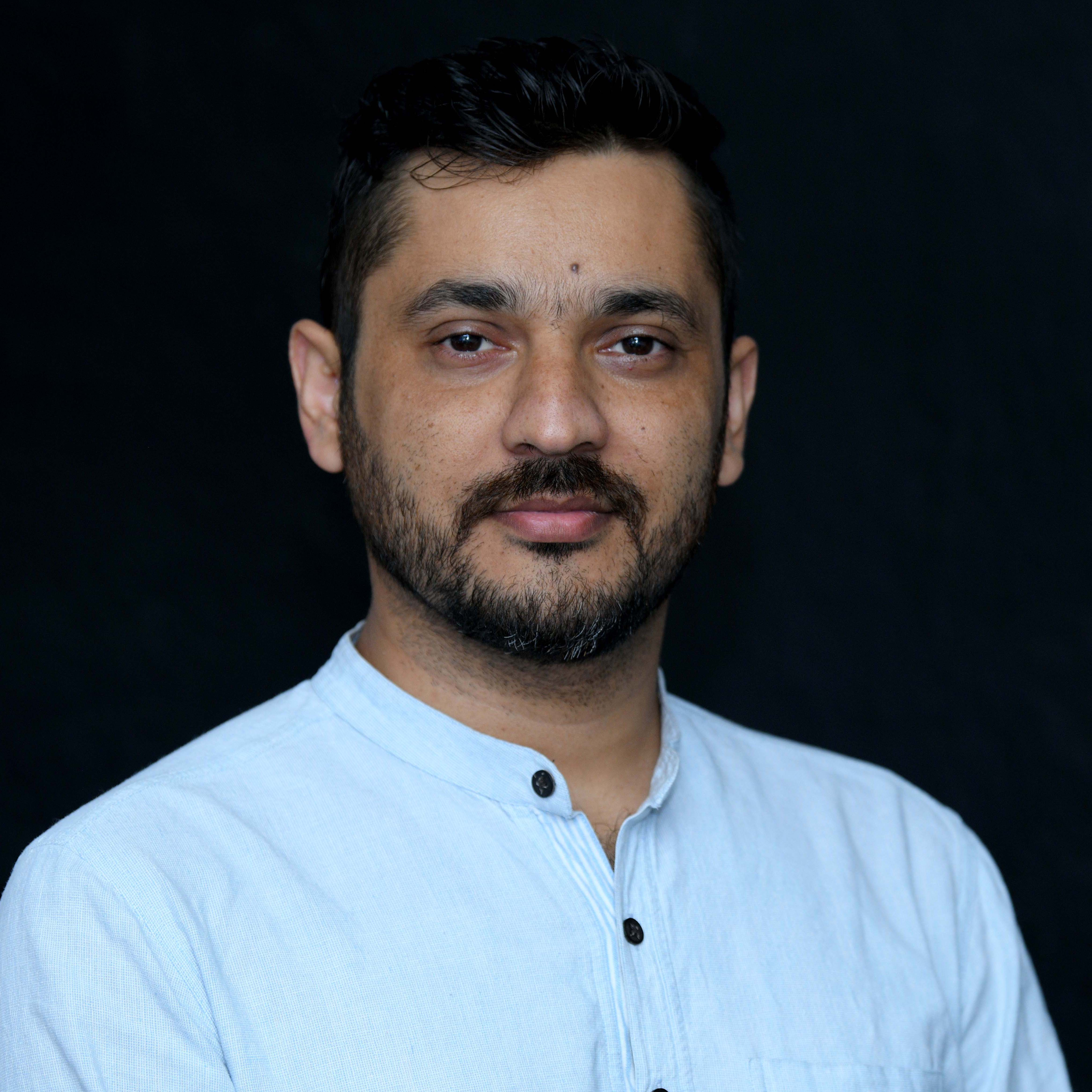Columns
Prachanda and the spectre of The Hague
Transitional justice should not be aimed only at hounding and punishing Prachanda for all war-era crimes. But his own party comrades may not be with him on this.
Dinesh Kafle
In William Shakespeare's tragedy Hamlet, when the eponymous king of Denmark dies suddenly, purportedly by a serpent bite, the entire country goes into mourning. Soon, the deceased king's brother, Claudius, ascends the throne and hastily marries the widowed queen, Gertrude. The new king helps his people come out of their collective grief, and he even exhorts the deceased king's son, Prince Hamlet, to stop suffering in extended mourning and move on in life.
King Claudius is well-spoken and intelligent. He has a natural instinct for statesmanship. He quells animosities with external enemies, stifles internal dissent, and manoeuvres national mourning to consolidate his power. He gives no reason for anyone to question his authority and integrity.
But deep inside, Claudius is morally corrupt and criminal. He uses manipulation and deception to get around things. He is capable of forfeiting anything or anyone he loves when they come in the way of his ambition. His loyalty is to power than justice.
The truth about Claudius comes to light only after King Hamlet's ghost informs Prince Hamlet that he was in fact killed. Claudius, it turns out, had poured poison into the king's ears when he was asleep in an orchard. Claudius is remorseful of his crime. He knows that he is a sinner—that he will go to hell for committing fratricide and regicide. He confesses his crime to god and seeks forgiveness. He acknowledges his crime and is willing to repent, but he also knows that his crime is unforgivable because he cannot forfeit what he has gained from the crime—the queen and the crown—and is willing to kill Prince Hamlet for fear of retribution. This moral dilemma is what comes in Claudius's path to seek true forgiveness.
On his part, Prince Hamlet must follow the ideal of retributive justice—an eye for an eye—to avenge the death of his father. He plots to kill his uncle, but when he finally has an opportunity, he can't kill, because the uncle is in the process of seeking forgiveness from god. To kill a praying man would be to send his spirit to heaven, and that is the last thing Prince Hamlet would want to do. It is this conflict between his duty of vengeance and the ethics of forgiveness that defines Prince Hamlet's moral dilemma. Despite being the wronged party he is the one who is conditioned to ask if his quest for justice is morally right. It is Prince Hamlet, the hero, who must ask himself repeatedly: ‘To be or not to be?’
Anti-heroes tend to put themselves at the centre of the world around them even if it means dishonouring the persons or principles that are legitimate claimants of the centrality. They are obsessed with themselves. They are megalomaniac, and they speak in monologues as if what they speak is universally acceptable dictum. Claudius makes this mistake in his quest for justice and forgiveness. His quest is premised on a fundamental flaw, in that he is unwilling to sacrifice his prejudices.
Not unlike Shakespeare's anti-hero, the chief architect of Nepal's ten-year Maoist insurgency puts himself at the centre of Nepal's quest for justice. When Pushpa Kamal Dahal 'Prachanda' challenged his detractors to take him to the International Criminal Court in The Hague for war-era crimes, it was this anti-heroic megalomania at work. He considers himself the centre of the transitional justice process while he should not be. For him, transitional justice means absolving him of all the war-era crimes.
To be fair to Prachanda, transitional justice should not be aimed only at hounding and punishing him for all war-era crimes. But his own party comrades may not be with him on this. It is this subterranean fear that is gnawing at him. He knows that his hold over the party is slowly slipping away, with his own former party comrades siding with the other co-chairperson, Prime Minister KP Sharma Oli. Apart from the suspicion that Oli might dishonour the 'gentleman's agreement' of power-sharing, he might be fearful that his own party comrades will one day bring up the issue of transitional justice to write him off permanently.
If there is anyone who needs the issue of war-era crimes to be done with permanently, it is Prachanda. But it is he who is the most insincere on this. His eternally changing stance on the transitional justice process betrays his unwillingness to take it to a logical conclusion. He once called for a 'forgive and forget' attitude to war-era crimes. Next, he said the Truth and Reconciliation had been a burden on himself. Psychiatrists would call it split personality disorder—only that it is not so in Prachanda's case. Prachanda uses this tool to game his detractors just like a chameleon changes its body colour to confuse its enemy.
Should Prince Hamlet have forgiven Claudius for killing his father and seducing his mother? Is forgiveness possible if two parties to conflict—the wrongdoer and the wronged—are unable to arrive at a middle space devoid of prejudices? Without the suspension of prejudices, there is no forgiveness. And without forgiveness, there is no reconciliation. A spiritual—and not legal—rite of passage that both the victim and the perpetrator must undergo for building a common future, reconciliation happens only when the perpetrator expresses remorse and the victim forgives the crime committed.
The best for Prachanda would be to seek reconciliation with the victims and the Nepali public. But what if he is adamant in his challenge to be dragged to The Hague? Despite his megalomania, he surely knows that the path to The Hague is long and windy. He also knows for sure that returning a hero from The Hague is nothing more than wishful thinking. But he will still repeat this monologue, just like Lennie, the protagonist of John Steinbeck's Of Mouse and Men repeatedly brags that he will live in a cave so that he can pet rabbits even it means dying of hunger.
As a significant stakeholder of not only the transitional justice process but also the contemporary political process, Prachanda would do well to realise that his heroism is to be derived from the legitimacy of the Nepali public rather than an international court. If he is unaware, his moment of heroism is behind him already. When he landed in Kathmandu on June 16, 2006, after packing up the insurgency, he had come not as a vanquished guerrilla but as a hero.
After all, he had given a safe landing to the insurgency and ensured an end to the violence. And in doing so he had won the hearts of the millions of Nepalis who, in the subsequent elections to the Constituent Assembly elected his party, the then UCPN (Maoist), as the single largest party. As a Nepali politician, his legitimacy, derived from Nepali electoral system, was as good as it could get. But he could not sustain the momentum, and the following years have mostly seen his legitimacy spiral downwards.
The issue of the war-era crimes needs a definite closure, and the perpetrators, the victims and the Nepali public need to move on. But that closure should not be as Prachanda wants. It is not the aggressor but the aggrieved who should be at the centre while looking for ways to give closure to this issue. Importantly, the function of justice is to champion the 'idea' of justice itself, be it through reconciliation or litigation.




 13.12°C Kathmandu
13.12°C Kathmandu















